Twilight Oracle review – Predictions of a short but fun classic-styled, point-and-click fantasy adventure largely fulfilled
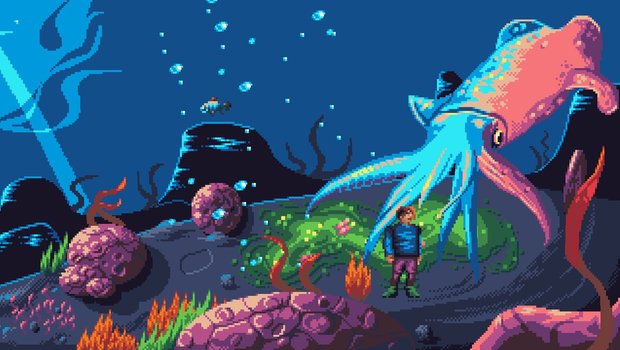
- 0 Comments
The adventure genre has ventured far beyond the classic point-and-click interface of its 90s heyday, but for nostalgia buffs there are still plenty of good old-fashioned games with pixel art, cool characters, and an inventory visible at the bottom of the screen. Twilight Oracle is just such a game, wrapping its old-school conventions in a serious story that’s not afraid to mix in some humor. I would’ve liked it to be a much longer game, with a more elaborate storyline and some more challenging puzzles, but I was certainly satisfied with the quality of the few hours of entertainment I got.
Twilight Oracle represents another evolution of style for Cosmic Void, who after the lo-res, 80s-style adventure Void Breach in 2020 brought us two first-person games: the Victorian-era psychological horror story The Corruption Within in 2021, followed by the narrative-heavy science fiction tale Blood Nova in 2022. This time around, the indie developer enters the familiar 90s style of adventure gaming with a charmingly comic fantasy story, taking place in a classic 2D world with beautiful pixel art backgrounds reminiscent of games like King’s Quest V and VI (without the thousand deaths) and Quest for Glory 3 and 4 (without the role-playing elements).
Leo, Jill, Marcus and Olivia are four friends sent to a faraway planet by the Magistrates of their school to capture a renegade disciple, a real rebel compared to these four slackers. It doesn’t take long, however, to discover the true nature of their mission may not be what they’d been led to believe. Soon The Eye, a strange artifact with mystical powers, becomes the MacGuffin in this story, highly sought-after by those with selfish interests, but the deception and betrayal surrounding its pursuit is rather flimsy. That doesn’t mean it isn’t a decent excuse for some nifty puzzling, though, mostly involving inventory and fetch quests.
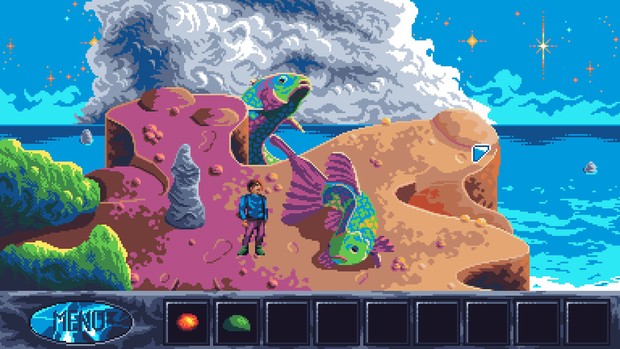
The characters all have their own special abilities, which naturally are featured in several puzzle solutions. Leo can breathe underwater, Jill can read minds, Marcus can create fire, and Olivia can control air. These powers are heavily underused, though. You would expect having to switch between the four characters Maniac Mansion-style, but Leo, the main protagonist, simply has to ask his friends for help when he requires a solution he can’t provide himself. And even then, you’ll only need each of their abilities once throughout the entire game.
This core four all have portraits during dialogues, with several variations to show the current emotion associated with what they are saying. Leo meets lots of other characters along his quest, but none of them have portraits, which is a bit of a letdown, especially since the developer obviously put a lot of work into making portraits of Kickstarter backers who chose that specific tier for a special pre-credits scene at the end of the game that shows how even everyday people can turn into heroes. Twilight Oracle features many interesting NPCs like a mermaid, an astronaut, a flute player, the King of Candyland and his pet cheerleader, and so many more I would have enjoyed seeing in more detailed close-ups to better identify them.
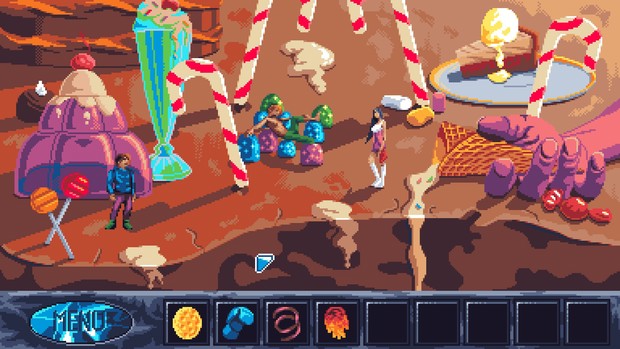
Thankfully all characters are fully voiced, which really gives them their own unique personalities. The actors do a great job, but you need to appreciate their style. The four main voice-overs sound appropriately college-aged, but the characters behave in a way that reminded me of those popular teen movies with overaged actors, full of vibrancy and life. They aren’t caricatures, however, but rather talk as people you would meet in real life, and there’s great chemistry between them. Twilight Oracle is a comedic adventure game but not of the silly, over-the-top cartoony kind. The humor is light-hearted, mostly concentrating on the banter between the group and Leo’s funny remarks about everything you click on.
Indeed, Leo is a great main character. I’m sure everyone knows the type: that one kid in high school that usually got away with everything by sweet-talking the teachers but did wind up in detention now and then. That charismatic, good-looking guy that joked around just enough without becoming irritating, who fell asleep at the mere mention of homework, and with the grades to prove it. I really liked him as a hero, and wouldn’t have minded spending more time with him.
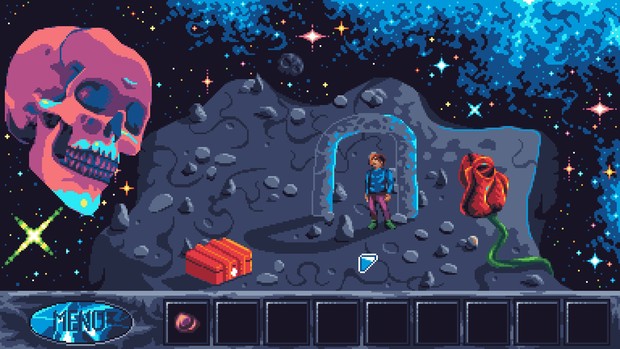
Twilight Oracle uses a simple one-click interface. Leo will describe the hotspots you click on and if they’re interesting enough, he’ll pick them up. Hovering over them in the inventory provides the items’ descriptions. You can use them directly on other hotspots, or combine them first before using. Clicking on other characters can start a conversation, but not always. There are no dialogue options to choose from; Leo will automatically say or ask what he needs to progress the story. If a character gives important information, you can always have them repeat it by clicking on them again. For instance, one character will ask you to photograph some things he will only describe with a riddle. You could just walk around and try to take pictures of everything you see (quite easy since there aren’t that many locations to explore), but it’s far more rewarding to figure it out on your own. Wait too long or take a break before you’re done, though, and it can be helpful to listen to the riddle a couple of more times as a refresher.
Environments range from the planet’s very Earth-like beaches, woods, cliffs and a large cave, to two other locations accessed through portals, as if they’re in different dimensions: the aforementioned Candyland, where everything is made from lollipops, jello, marshmallows and strawberry pie; and what appears to be the surface of an asteroid in outer space. Each general area has its own soundtrack, with heroic music alternating with 80s synthwave.
Not everything you see will make sense, but it’s usually there for comedic effect: a giant fish who jumped on land because he wanted to better hear the music, with his buddy bobbing up and down in the background to check up on him; the fully suited astronaut, never batting an eye when he sees Leo simply walking by in his normal clothes (I guess being able to breathe underwater also means he can breathe in space); a djinni emerging from an oil lamp and asking to have his own wishes fulfilled instead of granting them; and of course the entirety of Candyland. There’s no explanation for any of these, their silliness just for amusement. Nor does it negatively impact the gameplay, as the puzzle solutions all remain logical. While the fantasy world might start resembling it here and there, this game is no Curse of Enchantia. If you keep your wits about you, you won’t face too much challenge.
Final Verdict
While Twilight Oracle is certainly fun to puzzle through, the plot is little more than an easy excuse to present a bunch of fetch quests and inventory puzzles. These are simple enough and don’t take much thought, especially since the game world isn’t all that big. As long as you click on everything and everyone you see – often more than once, mind! – you shouldn’t have much of a problem. I got through the story myself in only three hours. And there lies the rub, because I wanted the fun to last, I wanted to see more, I wanted to utilize the kids’ special abilities more than once. Without spoiling anything, there’s a huge deception going on and an ulterior motive for having sent these kids on their mission, but the villain in the story isn’t really much of a mastermind. So if you’re looking to delve into the equivalent of a full interactive novel, you’re better off looking elsewhere, but taken as a short story, Twilight Oracle really works and you’ll definitely enjoy it while it lasts.
Hot take
Twilight Oracle is a nostalgic ride through a zany fantasy world, though even its witty banter can’t hide the fact it’s a short story with a simple plot only good for a single afternoon’s fun.
Pros
- Vibrant pixel art backgrounds
- Presentation filled with 90s point-and-click nostalgia
- Great chemistry between the lively voice cast
- Charismatic and likeable little scoundrel as a main character
Cons
- Special abilities of the characters are highly underused
- A short game without much narrative depth
Johnny played Twilight Oracle on PC using a review code provided by the game's publisher.


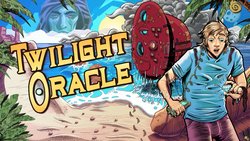
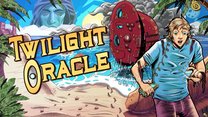

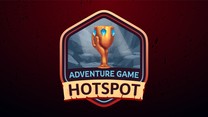
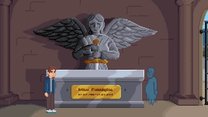




0 Comments
Want to join the discussion? Leave a comment as guest, sign in or register in our forums.
Leave a comment